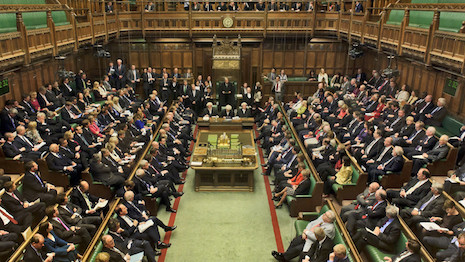 Leave.EU played a key role in the British public’s historic vote on June 23, 2016 to leave the European Union. Image courtesy of Leave. EU
Leave.EU played a key role in the British public’s historic vote on June 23, 2016 to leave the European Union. Image courtesy of Leave. EU
By James Gurling A High Court ruling earlier this month in London meant that the British Parliament, and not the executive function of government, will commence the United Kingdom’s withdrawal from the European Union. Viewed as controversial by some, it will at least ensure a more public debate. And it is this prospect that could provide just the opportunity that the luxury good sector needs to make its case. Sterling reasons Valued at $40.4 billion, the luxury goods sector is a significant player in the U.K.’s economy and is an important indicator of the country’s international attractiveness. According to Bain & Company’s Global Luxury Report 2015, London is one of the top three world cities for luxury goods sales, alone accounting for $14 billion of luxury goods sales in 2015. In the context of a global luxury goods market that posted solid growth last year – generating revenue of more than $1.1 trillion – it is a critical moment for the sector in the U.K. Having a voice and being understood could be crucial as, given its strong international focus, the stakes are perhaps higher than for other parts of the economy. Growth in mature markets such as the U.K. is increasingly dependent on spending by tourists, with Europe the top destination for Chinese consumers of luxury goods last year. Indeed, tourists from elsewhere in the world now account for a majority of personal luxury goods spending in Europe. If London loses its allure, the U.K. luxury sector could suffer sooner and harder than others. But it has not thus far happened. And the reason is the declining value of the pound sterling – falling by more than 15 percent against the Chinese yuan and 18 percent against the U.S. dollar since the Brexit vote on June 23. A recent Deloitte report found that the U.K. has become the most affordable luxury market in the world: a “Speedy 30” Louis Vuitton handbag bought in London reportedly costs $802, but retailed for $970 in New York. The strong reliance of the U.K. luxury market on foreign consumers may therefore dampen any immediate decline in domestic consumption resulting from the pound’s recent falls. But a cheaper currency may not all be good news for the sector, particularly if increased costs for brands with global supply chains pass increased costs on to consumers. The posture that the government adopts in its exit negotiations with the E.U. will have a long-lasting effect on the sector.
 Britain's High Court ruled Nov. 3 that Parliament must vote on whether the United Kingdom can start the process to leave the European Union. What it means is that the government on its own cannot trigger Article 50 of the Lisbon Treaty commencing formal exit negotiations with the E.U., further infuriating Leave campaigners. Image of the House of Commons courtesy of Leave.EU
Britain's High Court ruled Nov. 3 that Parliament must vote on whether the United Kingdom can start the process to leave the European Union. What it means is that the government on its own cannot trigger Article 50 of the Lisbon Treaty commencing formal exit negotiations with the E.U., further infuriating Leave campaigners. Image of the House of Commons courtesy of Leave.EU
 James Gurling is managing director at MHP Communications and Cocoon
James Gurling is managing director at MHP Communications and Cocoon
